Bina Swadaya Founder Speaks at Forum on Social Entrepreneurship
Last January 21, 2013, Mr. Bambang Ismawan, the co-founder and chair of Bina Swadaya, shared about the journey of Bina Swadaya towards sustainability in a public symposium entitled, Perspectives on Social Entrepreneurship and NGO Sustainability: Lessons from Indonesia. Bina Swadaya is a self-sustaining Indonesian NGO running on the profits generated by 17 subsidiary organizations. The primary activities of the organization are community empowerment, microfinance service and development, agribusiness development, development communication, and marketing promotion and distribution. The forum took place at the GT Toyota University of the Philippines Asian Center Auditorium. It was co-organized by the Institute for Social Entrepreneurship in Asia (ISEA), University of the Philippines (UP) Asian Center, the Philippine Rural Reconstruction Movement (PRRM) and supported by the Foundation for a Sustainable Society, Inc. (FSSI), and Oikocredit Philippines.
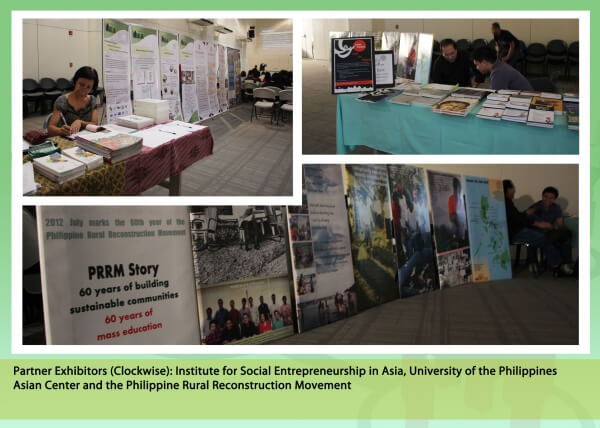
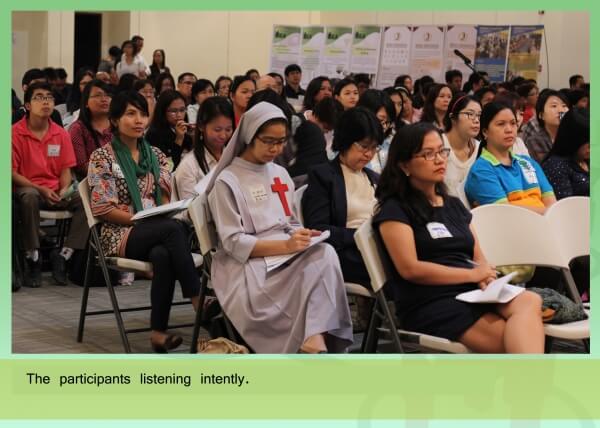
Dr. Marie Lisa Dacanay, President of ISEA, served as the moderator and Dr. Carolyn Sobritchea, Dean of UP Asian Center, provided the welcoming remarks.
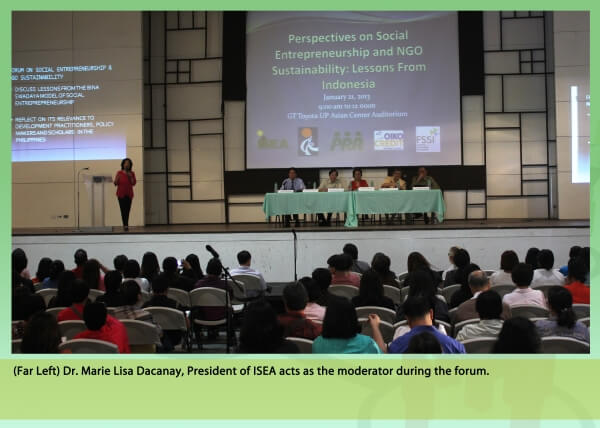
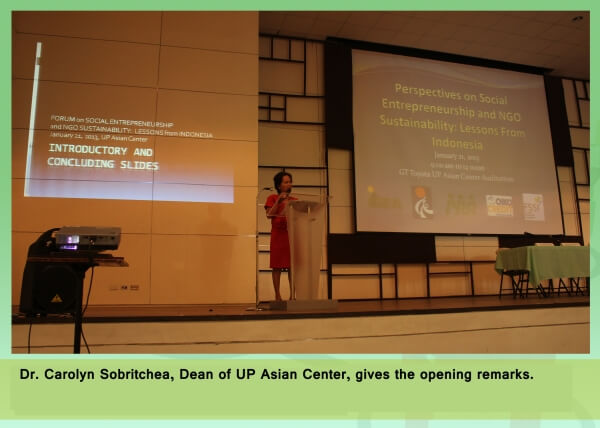
Mr. Ismawan shared about the journey of Bina Swadaya to sustainability and the different attributes that allowed them to succeed.
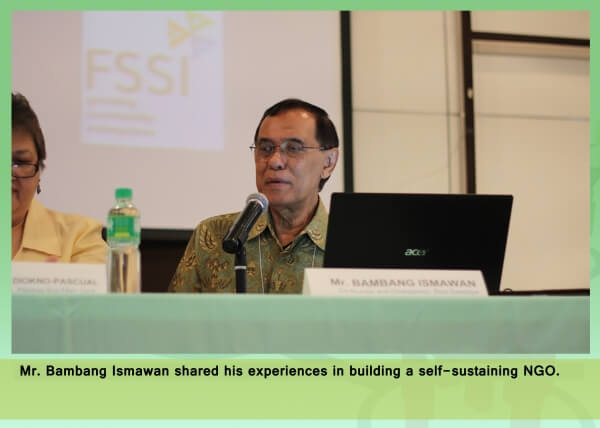
Bina Swadaya had three stages in its development: The Pancasila Social Movement Era (1954-1974), The Socio-Economic Development Institution Era (1974-1999), and The Social Entrepreneurship Institution Era (1999-present). Each of these stages contributed to Bina Swadaya’s evolution into a self-sustaining NGO. Socio-political circumstances in the 1950s led to the formation of mass organizations for the empowerment of marginalized groups including the Pancasila Farmers Union (IPP). The IPP engaged in the organization of Community Self-Help Units (KSMs) or cooperative businesses. These Community Self-Help Units were managed by the Social Institute of Developing Farmers (YSTM) which later evolved into Yayasan Bina Swadaya. In the Socio-Economic Development Institute Era, YSTM was involved in developing the KSMs into businesses catering to the improvement of marginalized people’s lives and developing the agriculture and farming magazine, Trubus. The Social Entrepreneurship Period started with the realization that to effectively develop the KSMs as a sustainable tool for the empowerment of the poor, Bina Swadaya would also need to become self-sustaining. Limited Liability Companies (LLCs) were formed corresponding to the activities of Bina Swadaya. Currently, 17 subsidiary companies exist. The companies engage in these activities: community empowerment, microfinance development, agribusiness development, development communications, printing services, alternative tourism development, and facilities rental.
Mr. Ismawan also detailed the three pillars of Bina Swadaya: First is the Community-Based Self Reliant Institution Development which aims for the empowerment of community-based self-help groups, second is the Community Based Production Promotion, which is geared at the development, promotion and provision of market linkages for agriculture products, and the third is the Development and Microfinance Service and Development, which involves the provision of microfinance services to the poor.
Ms. Maria Teresa Diokno-Pascual, Executive Director of Pilipinas Eco-Fiber Corporation, Prof. Eduardo Gonzalez, Ph.D, Faculty, UP Asian Center and Mr. Isagani Serrano, President, PRRM, were members of the panel of reactors. In varying degrees, the three spoke of the theoretical and practical challenges in the implementation of an organization that aims for social justice and wealth creation. Both Prof. Gonzalez and Mr. Serrano posed questions on the critical interplay of wealth creation and social mission.
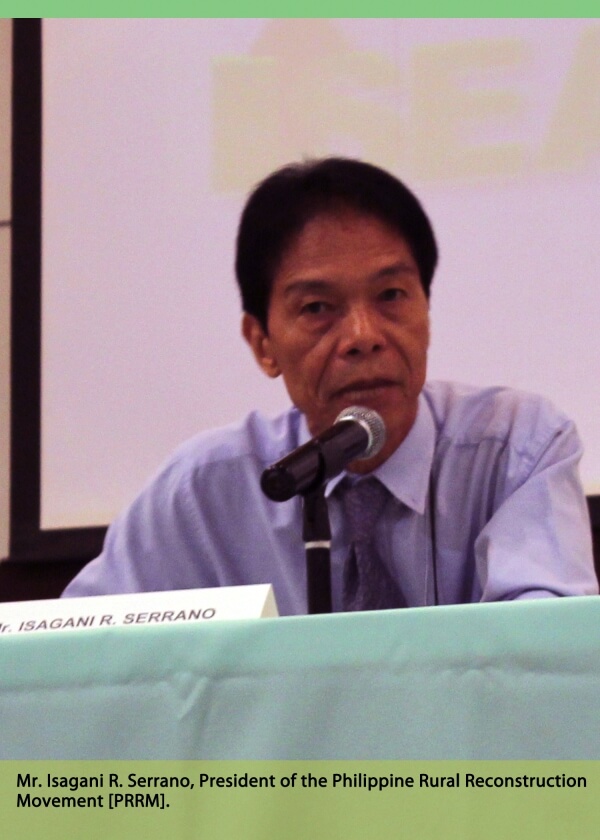
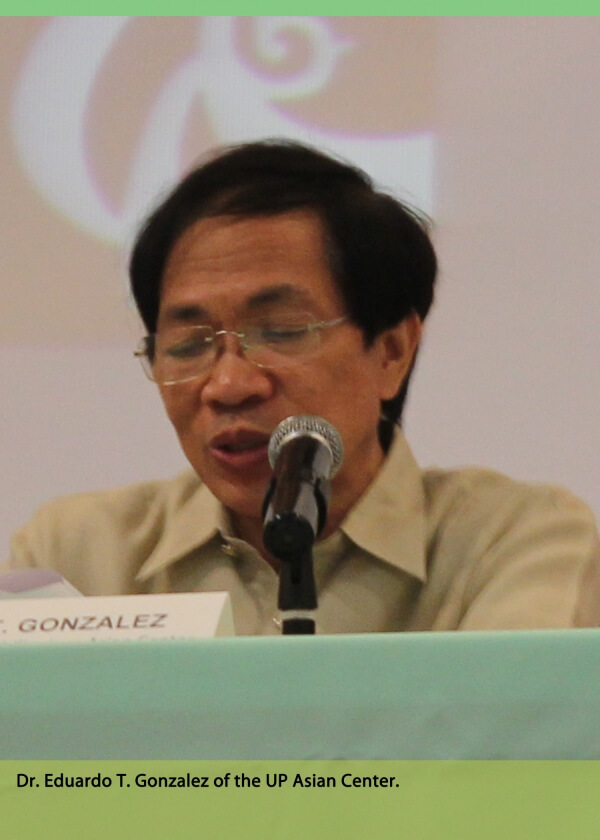
Ms. Diokno-Pascual had practical questions about how a development organization such as Bina Swadaya integrated political organizing to building social enterprises.
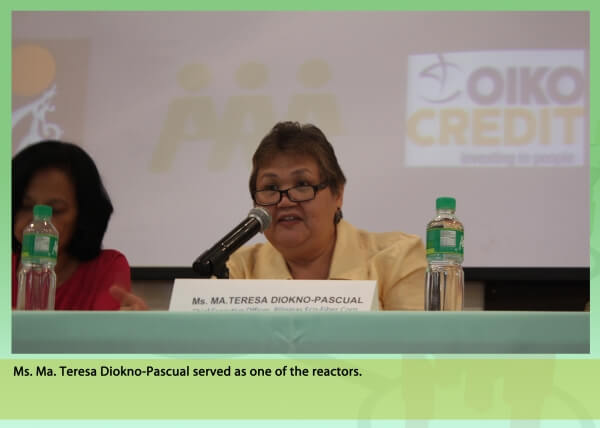
Participants of the forum were also provided a venue to ask questions about Bina Swadaya and social entrepreneurship and NGO activities.
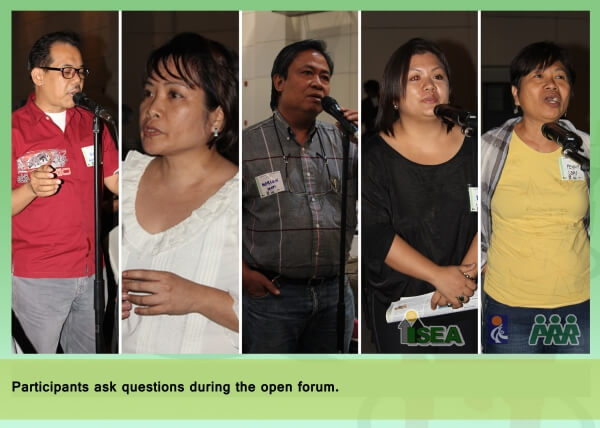
The forum was well attended, 180 attendees from various civil society organizations and social enterprises, academic bodies and learning institutions, the government, and the private sector participated, highlighting the increasing interest in social entrepreneurship as a strategy for financial sustainability.
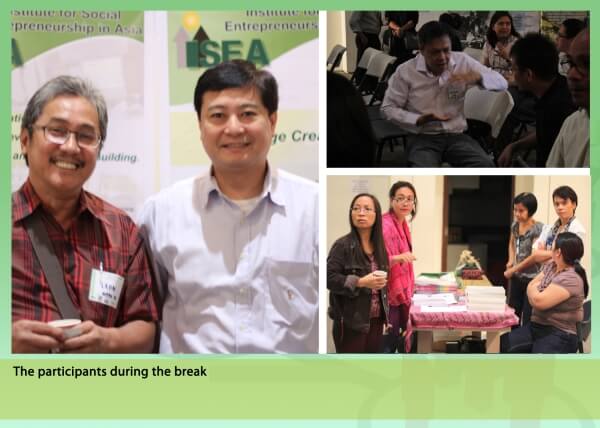
The forum contributed to building a learning community on social entrepreneurship among development practitioners and NGOs in the Philippines as well as the academe. It also provided an opportunity for ISEA to initiate an intercultural learning event involving its constituencies in Asia
*Please go to ISEA’s Facebook page for more photos: https://www.facebook.com/ISEA.Manila
